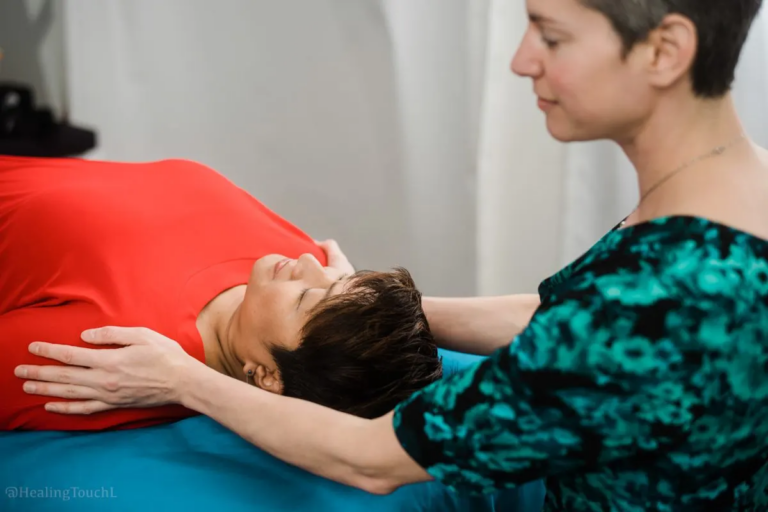
Reiki, an alternative healing method that has gained wide popularity across the globe, largely relies on a form of energy transfer via the hands. Many people seek this approach for its potential benefits of relaxation and well-being. Do I have to take off my clothes in a Reiki session? This article covers this question comprehensively offering insight on what to expect during Reiki treatment.
What Should I Wear to a Reiki Session?
Wear comfortable, loose-fitting clothes to a Reiki session to help you relax. Avoid tight or restrictive clothing, and opt for natural fabrics like cotton. Remove shoes and heavy accessories before the session starts to enhance comfort and energy flow. A relaxing atmosphere is key.
Wearing comfortable clothes lets your mind focus on the experience and not on what you’re wearing. Natural fabrics, whether in cotton or linen, will actually truly make you feel comfortable and relaxed. Allowing yourself to do without clothing items, like belts or jewelry, minimizes the distractions further, hence setting a serene atmosphere that would enable you to participate in the Reiki process.
What Can I Expect During My First Reiki Session?
During your first Reiki session, expect to lie fully clothed on a massage table as the practitioner gently places their hands on or near your body. Sessions last about an hour, and aim to promote relaxation and energy flow. You might feel warmth, tingling, or deep relaxation.
A Reiki session should be done in a setting that is quiet and non-stimulating. Various hand placements may be utilized to bring focus to the major energy centers in the body. Many individuals fall asleep, while others cry during the session, as there is peace or emotional release from it; however, communication and being comfortable with your practitioner are always recommended.
How Long Does a Reiki Session Typically Last?
A typical Reiki session lasts between 45 to 60 minutes, allowing time for relaxation and energy balancing. Shorter sessions, around 30 minutes, are also available for those with limited time. Discuss your preferences with the practitioner to tailor the session length to your needs.
Reiki sessions differ in length, depending on individual needs and what practitioners offer. Some clients prefer a longer session to achieve deeper relaxation, while others prefer shorter, more focused experiences. In most cases, practitioners are flexible and open to offering the session time that best fits your schedule and comfort.

Are There Any Restrictions on What to Eat or Drink Before a Reiki Session?
There are no strict restrictions, but it’s advisable to eat light and stay hydrated before a Reiki session. Avoid heavy meals or excessive caffeine, as they might affect your ability to relax. A balanced diet supports your body’s natural energy flow, enhancing the session’s effectiveness.
Preparing for a Reiki session will set the scene for relaxation and healing. Having a light meal beforehand will prevent you from feeling uncomfortable during the session. Water intake will keep your body hydrated and at its best. Avoiding stimulants like caffeine will help you relax and focus more easily for the session.
Can I Bring Personal Items to a Reiki Session?
You can bring personal items like a favorite blanket or pillow for added comfort during a Reiki session. Some practitioners encourage bringing crystals or essential oils if they enhance your relaxation. Discuss with the practitioner to ensure these items align with the session’s goals.
Personal items may be warmly familiar and help to promote comfort. Crystals and essential oils, though, should be mentioned with your practitioner, as there may be contraindications for their use within the session. Open communication can help tailor your experience in the best possible way for you.

How Should I Prepare Mentally for a Reiki Session?
Mentally prepare for a Reiki session by setting a clear intention and embracing an open mind. Practicing mindfulness or meditation before the session can enhance relaxation. Reflect on any areas where you seek healing or balance to guide the practitioner’s focus during the session.
Its potential value will increase if one goes into a Reiki session with an open mind and heart. One may set an intention for what they would like to get from the session to help begin guiding one’s own personal energy toward the healing process. Mindfulness exercises may be done before a session in order to begin quieting the mind and making oneself more receptive to this work.
What Are the Benefits of a Reiki Session?
Reiki sessions promote relaxation, reduce stress, and enhance overall well-being. They may help alleviate anxiety, improve sleep quality, and boost emotional balance. By supporting the body’s natural healing processes, Reiki can complement conventional medical treatments and contribute to holistic health.
Reiki is a gentle practice that encourages the body’s innate self-healing abilities. Many clients have reported that they walk out of the session feeling centered and very calm, with an overall effect that has effects reaching far beyond physical relaxation. Regular sessions can contribute to long-term well-being and thus act as a general support for emotional, mental, and physical health.
Reiki Session Wrap-Up
In conclusion, Reiki’s non-invasiveness makes it a comfortable choice for therapy that emphasizes tranquility and calmness. To get the best out of it, you should actively communicate with your practitioner throughout the procedure. Open dialogue allows you to develop a relationship that ensures that your individual needs are met while considering your comfort level during the process.
